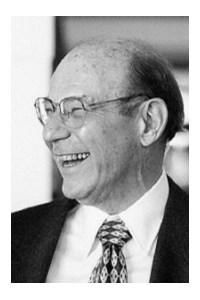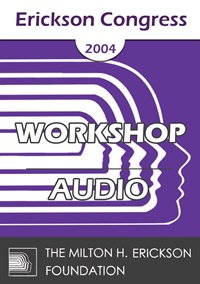IC04 Workshop 40 - The Use of Language in Psychotherapy - Richard Fisch, M.D.
- Average Rating:
- Not yet rated
- Topic Areas:
- Workshops | Psychotherapy | Language of Hypnosis
- Categories:
- Erickson Congress | Erickson Congress 2004 | Pioneers in Couples and Family Therapy
- Faculty:
- Richard Fisch, MD
- Duration:
- 2:27:24
- Format:
- Audio Only
- Original Program Date:
- Dec 05, 2004
- License:
- Never Expires.
Description
Description: Dr. Richard Fisch explores the critical role of language in therapy, emphasizing techniques to enhance hope, manage non-compliance, and adapt to clients' communication styles. He discusses the shift from psychotherapy to psychopharmacology in psychiatry training and shares case studies, including strategies for anxiety treatment. Fisch illustrates the effectiveness of precise language through anecdotes and practical interventions, offering valuable insights for clinicians.
Syllabus Description: Therapy is, inherently, a means of influencing a client, mostly verbally. This workshop will illustrate guidelines for making language more precise and effective in order to enhance the therapist's and client's goal of the therapy. Guidelines will be explained didactically, in a composite videotape of a clinical case and in dialogue with participants.
Educational Objectives:
- To describe the importance of distinguishing between "the right thing to say" and the "effective thing to say."
- To describe how to tailor therapeutic language to the individual client.
*Sessions may be edited for content and to preserve confidentiality*
Credits
Handouts
| Timestamped Transcript (1.1 MB) | 28 Pages | Available after Purchase |
| Timestamped Transcript (859.1 KB) | 20 Pages | Available after Purchase |
| Ericksonian Learning Snapshot (251 KB) | 2 Pages | Available after Purchase |
Faculty

Richard Fisch, MD Related Seminars and Products
RICHARD FISCH, MD, is a psychiatrist in private practice; consultant to the San Mateo County Juvenile Probation Department and Director of the Brief Therapy Center at the Mental Research Institute. Dr. Fisch has co-authored Change - Principles of Problem Formation and Problem Resolution and The Tactics of Change - Doing Therapy Briefly. He is recipient of awards for family therapy from AFTA and AAMFT.


